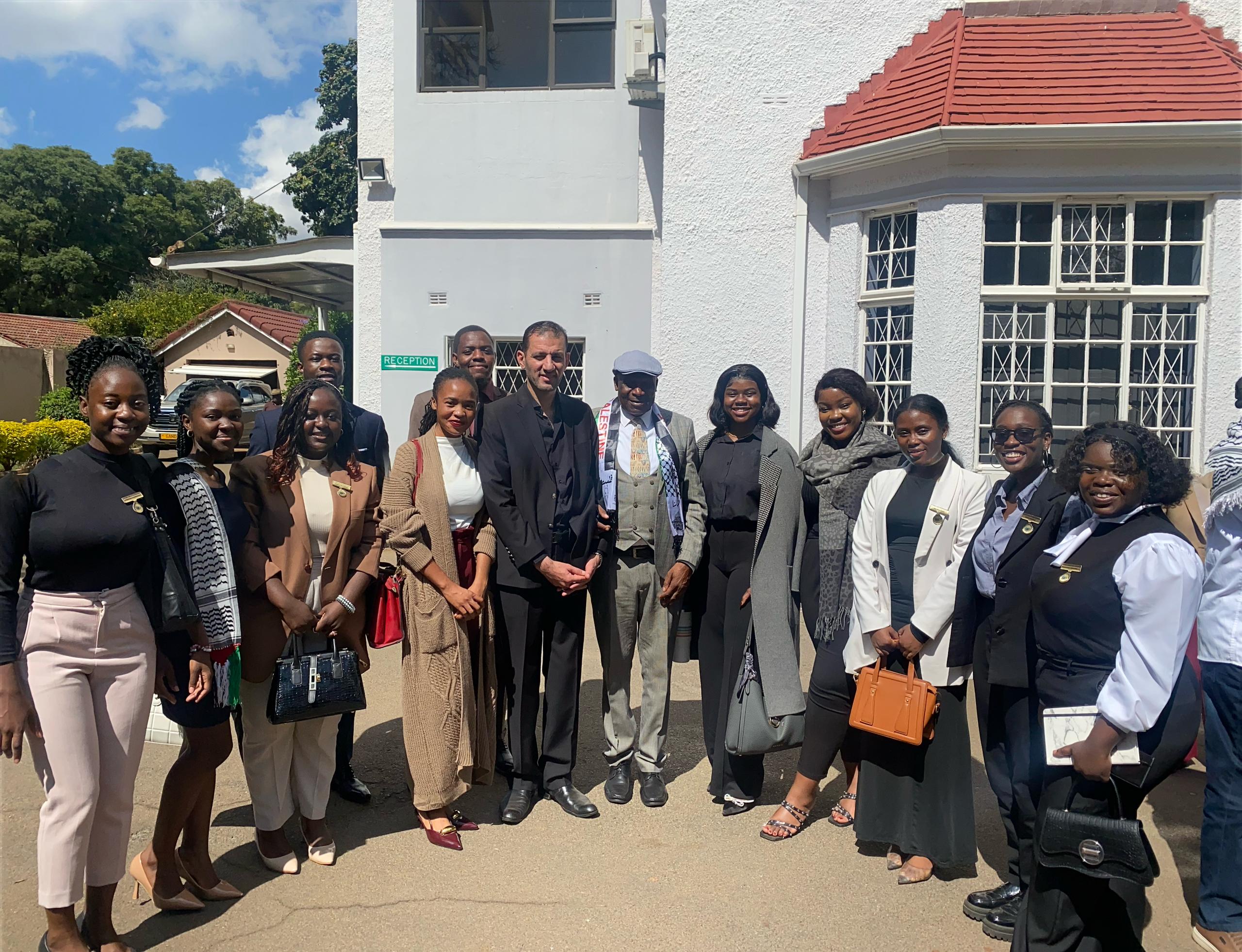A Day of Memory, A Call for Justice: Commemorating Nakba Day in Zimbabwe.
By Ruth Tsanga
Every year on the 15th of May, voices rise globally to observe and commemorate the mass displacement of Palestinians that began in 1948, known in Arabic as “al-Nakba,” which means “the catastrophe.” This day marks the moment when more than 700,000 Palestinians were forcibly uprooted from their homes and denied their right to return – an event that set the foundation for a prolonged struggle for freedom, justice, and statehood.
The Nakba is not just an event or a moment in history. It is a living story of displacement, resilience, and the enduring hope for justice. It is a continuing experience for many Palestinians who are facing displacement, military occupation, and conflict-related trauma to this day. Observing Nakba Day is a vital act of memory and resistance as it reminds the world of the ongoing human cost of unresolved injustices.
As the Southern African Young Diplomats, we were honoured to attend the Nakba Day commemoration at the Palestinian Embassy in Zimbabwe. This moment allowed us to stand in solidarity with the Palestinian people and amplify the call for peace and justice.
The event was marked by deeply moving poetry, solidarity messages, and educational reflections. Various people delivered spoken word performances addressing not only the war in Palestine but also themes of gender, identity, and resistance. School children were also present, and their voices and presence were a symbol of hope for a more peaceful and just world.
The Palestinian Ambassador, His Excellency Tamer Almassri, delivered a powerful address which recounted the devastating toll of the recent and systemic attacks on Gaza, including a tragic assault on the European Hospital in Khan Younis a few days ago. His remarks reminded us that behind political headlines lie real people including families, children, and communities enduring unspeakable suffering. The Ambassador, His Excellency also acknowledged Zimbabwe’s historical legacy of liberation, drawing parallels between Zimbabwean and Palestinian struggles for freedom. Zimbabwe, a country whose own history bears the scars of colonial displacement, shares a moral and historical connection to the cause of decolonisation and justice in Palestine. This shared experience underpins the importance of African solidarity with the Palestinian people which is grounded in empathy, history, and a collective commitment to peace.
As young diplomats, we believe that peace is not merely absence of war, but the presence of justice. Events like Nakba Day remind us of the need to humanise conflict and elevate the voices of those most affected. We often understand peace in theory, but it is in spaces like these that we truly begin to feel its urgency. Ending cycles of displacement, violence, and injustice requires more than remembrance. It requires action. Young people must be at the centre of these movements, using our platforms to educate, advocate, and build bridges across nations.
Let us commit to peace not as a passive ideal, but as a bold, active pursuit rooted in solidarity, empathy, and truth.


1 Comment
Annita Mutubuki
Having attended this deeply moving Nakba Day commemoration at the Palestinian Embassy, I was particularly struck by the Ambassador’s powerful words and the poignant expressions of solidarity. As a young diplomat, I was left with a renewed commitment to actively pursue that peace, understanding that it demands not just remembrance, but concrete action and the amplification of voices too often unheard.